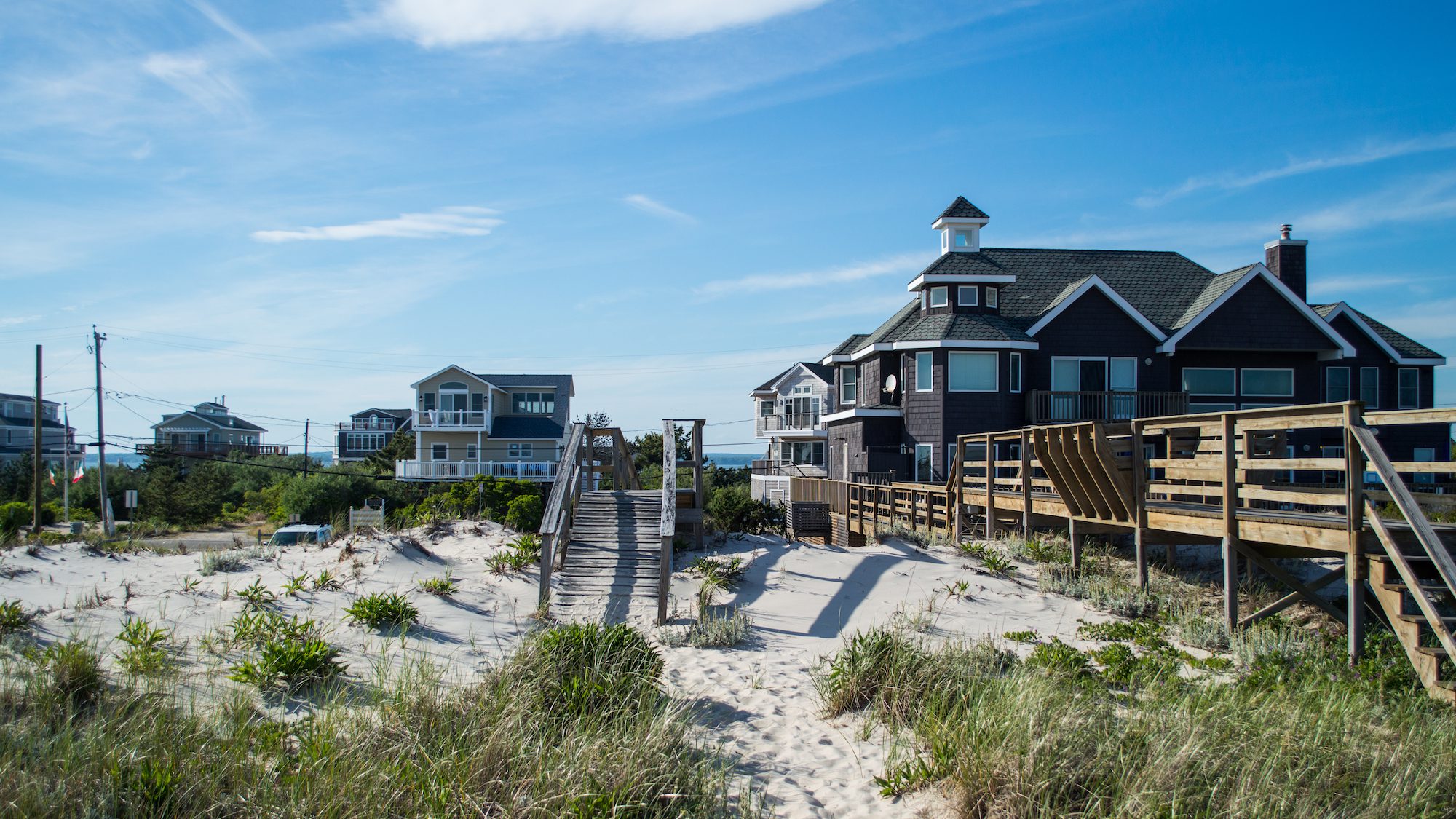
Miles Astray/iStock
The middle of a pandemic-induced recession, with millions of people out of work and the future uncertain, does not seem like the best time to drop big bucks on a home. That is, unless you’re a wealthy city dweller and that home is a luxury property with an in-ground pool and plenty of acreage, far from the potentially infected urban hordes.
Interest and prices in the luxury housing market rose sharply in May, according to a recent realtor.com® report. (Realtor.com defines luxury as the top 5% of the most expensive homes in a given market.) And demand in that sector has shifted from sleek, urban high-rises to popular vacation destinations where buyers can score larger, more private residences in less populated areas.
“COVID-19 and the recession have not affected everyone equally,” says Javier Vivas, realtor.com’s director of economic research. “We’re coming off a great economic boom … and home buyers in the luxury tier have accumulated wealth for these types of purchases. This is not atypical, as high net worth individuals are traditionally less affected by recessionary blips, and some see it as an opportunity to invest or offload cash into real estate.”
This increase in demand for high-end homes is driving prices up. The entry point for luxury homes rose to a median $2.97 million in May. That’s up 0.5% from April and 6.1% from the previous May, when no one had even heard of COVID-19.
In addition, views of luxury home listings on realtor.com shot up 7.3% year over year in May. That was a departure from April, when views of such listings plummeted 9.5% compared with the previous year.
In the New York City region, an early U.S. epicenter of the pandemic, members of the richest 1% focus their home searches on the Hamptons, a string of exclusive beach communities on the eastern end of Long Island; in upscale parts of New Jersey; and the New York City suburbs. (Prices for luxury properties in the city itself remained steady though, a slight improvement over the mild declines they were seeing before the pandemic.)
Views per property on luxury listings rose 72% annually in the Hamptons in May. They also shot up 40% in Union County, NJ; 30% in Bergen County, NJ; and 28% in Somerset County, NJ. Before the pandemic, listing views were up only 10% to 21% in these areas.
“COVID-19 hit these regions hard and early compared to the rest of the country, prompting potential buyers to reassess their needs and priorities,” says Vivas.
“With the lockdowns and lingering health concerns, buyers of all ages are placing more value on extra space and privacy, with more opting for safer and larger spaces at the expense of [the] urban living lifestyle,” he adds. “That’s made the suburbs and exurbs more attractive, particularly for households who can afford the price tag and those who can work virtually.”
Other popular destinations were the desert getaway of Palm Springs, CA, and Greenwich, CT, a wealthy enclave just outside of New York City. Luxury listing views rose 28% and 24% in those locations respectively.
However, not all high-end markets fared as well. Interest has waned in Honolulu; Key West, FL; Pebble Beach, CA; and Colorado ski towns in Eagle and Summit counties.
There was also still a shortage of luxury listings. The number of $1 million-plus homes on the market dropped 15.6% year over year in May. These homes also took a bit longer to sell—a median 89 days on the market in May compared with 71 days a year earlier.
The post What Recession? The Luxury Housing Market Is Back and Vacation Destinations Are Hot appeared first on Real Estate News & Insights | realtor.com®.
